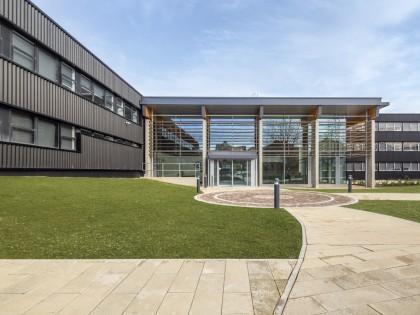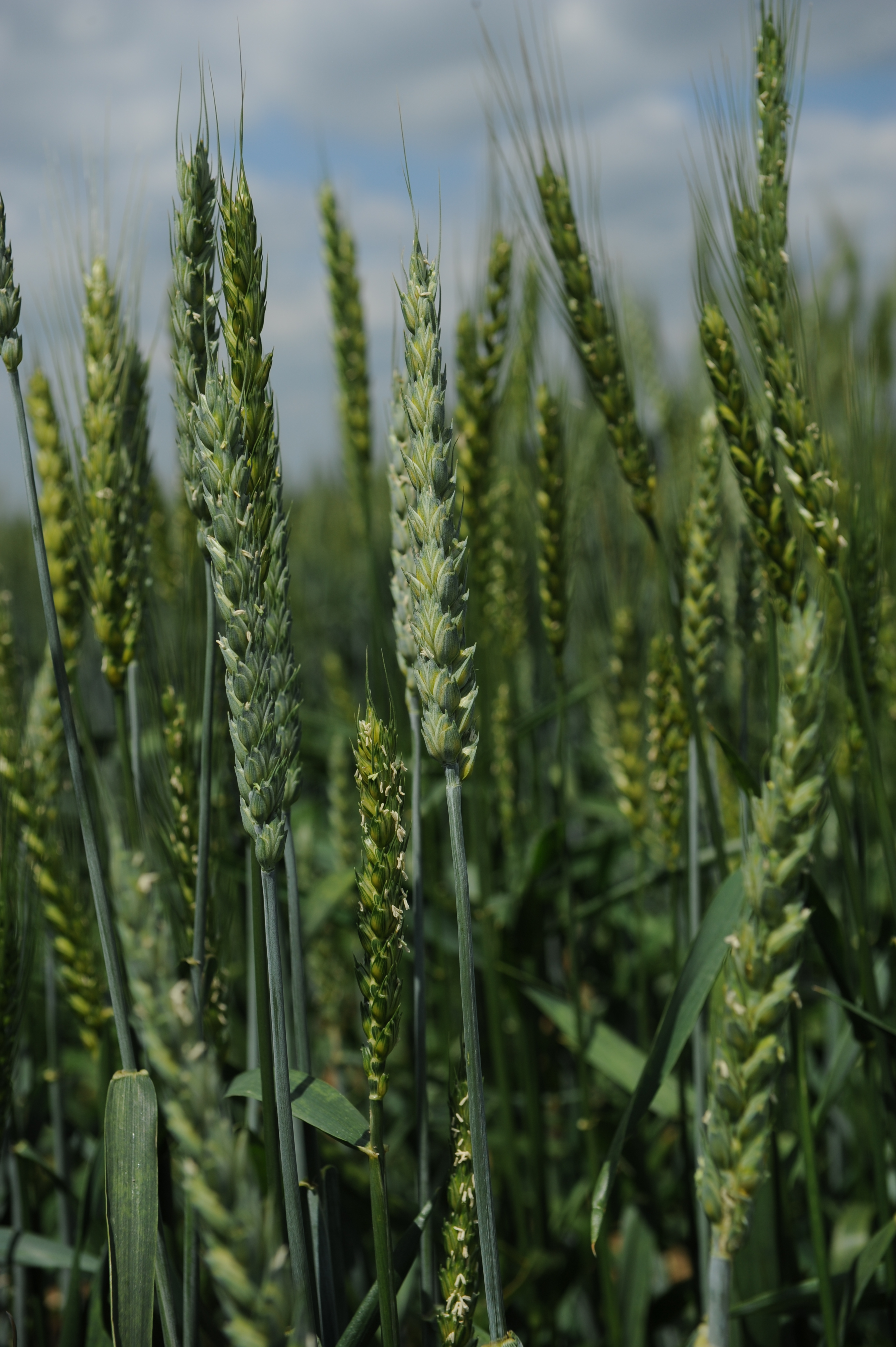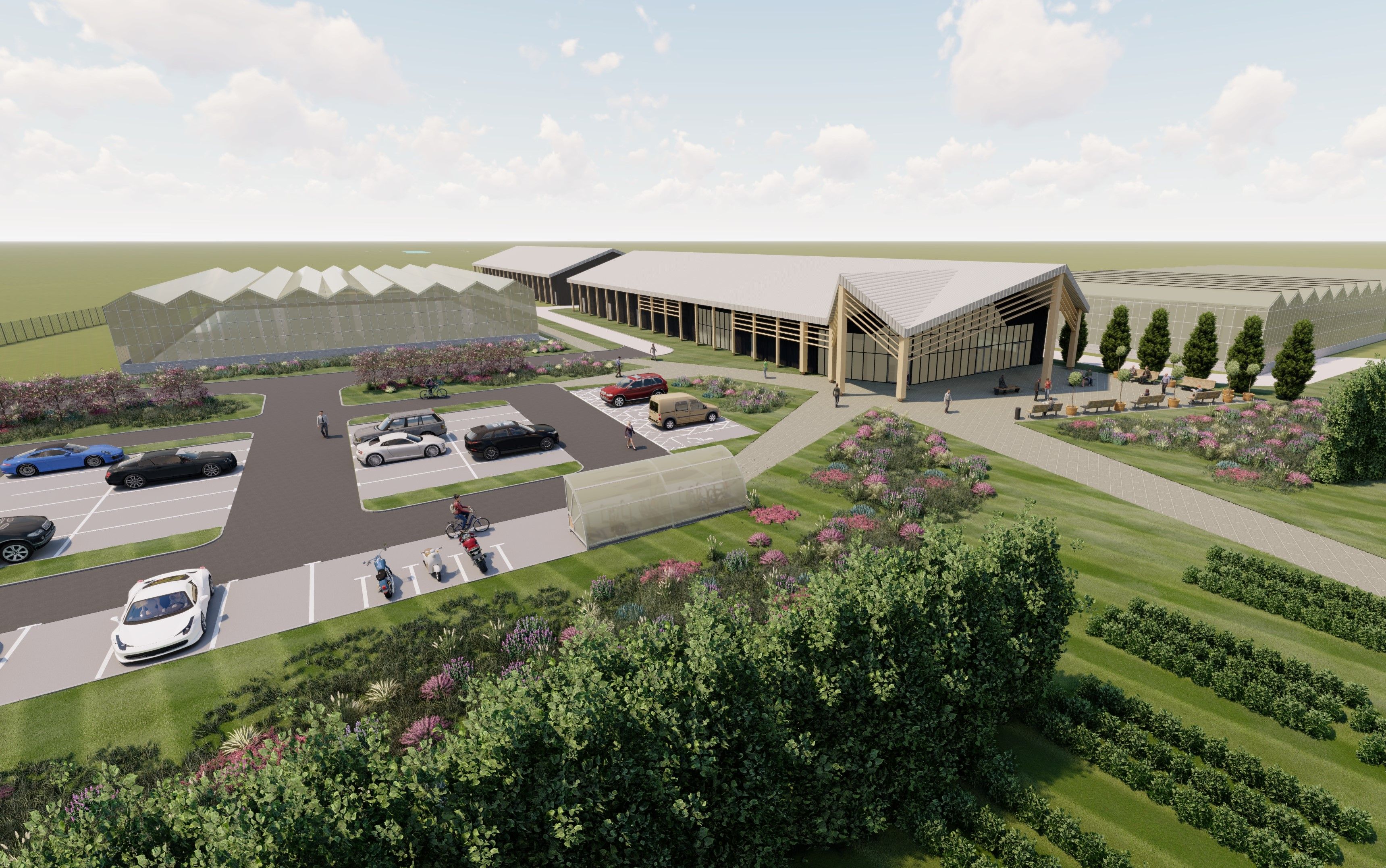- About
-
Research
- Agronomy and farming systems
-
Agricultural crop research
-
Research projects - agriculture
- About SASSA-SAI
- BioBoost
- Biomass Connect
- CTP for Sustainable Agricultural Innovation
- Climate Ready Beans - workshop presentations (March 2022)
- Crop diversity HPC cluster
- Designing Future Wheat
- Final project workshop
- Get involved
- List of materials
- News and updates
- Partners
- Rustwatch
- The Sentinel Crop Disease Surveillance Network
- The research team
- UK Cereal Pathogen Virulence Survey
- UK wheat varieties pedigree
- Weed management - IWM Praise
- Crop breeding
- Crop characterisation
- Data sciences
- Genetics and pre-breeding
- Plant biotechnology
- Plant pathology and entomology
- Resources
-
Research projects - agriculture
-
Horticultural crop research
-
Research projects - horticulture
- Augmented Berry Vision
- BEESPOKE
- Boosting brassica nutrition in smart growing systems
- CTP for Fruit Crop Research
- Develop user-friendly nutrient demand models
- Egg laying deterrents for spotted wing drosophila
- Enhancing the nutritional quality of tomatoes
- Improving berry harvest forecasts and productivity
- Improving vineyard soil health through groundcover management
- Intelligent growing systems
- Knowledge transfer for sustainable water use
- POME: Precision Orchard Management for Environment
- RASCAL
- STOP-SPOT
- UV-Robot
- Crop science and production systems
- Genetics, genomics and breeding
- Pest and pathogen ecology
- Field vegetables and salad crops
- Plum Demonstration Centre
- The WET Centre
- Viticulture and Oenology
-
Research projects - horticulture
- Crop Science Centre
- Research Projects
- Research Publications
-
Services
- Analytical Services
- Business Development
- Commercial trial services
- Membership
- Plant breeding
- Plant characterisation
- Seed certification
-
Training
-
Technical agronomy training
- Advanced crop management of bulb onions
- Advanced crop management of vegetable brassicas
- Advanced nutrient management for combinable crops
- Benefits of cover crops in arable systems
- Best practice agronomy for cereals and oilseed rape
- Developing a Successful Strategy for Spring Crops
- Disease Management and Control in Cereal Crops
- Incorporating SFI options into your rotation
- Protected Environment Horticulture – Best Practice
- Techniques for better pest management in combinable crops
- Crop inspector and seed certification
- Licensed seed sampling
-
Technical agronomy training
- News & Views
- Events
-
Knowledge Hub
- Alternative and break crops
-
Crop genetics
- POSTER: Diversity enriched wheat (2025)
- POSTER: Genetics of wheat flag leaf size (2024)
- POSTER: Wheat yield stability (2024)
- Poster: Traits for future cereal crops (2022)
- POSTER: wild wheat fragment lines (2022)
- POSTER: Improving phenotyping in crop research (2022)
- PRESENTATION: Plant breeding for regen ag
- Poster: Designing Future Wheat (2020)
- Crop nutrition
-
Crop protection
- POSTER: Understanding the hierarchy of black-grass control (2025)
- POSTER: Emerging weed threats (2025)
- POSTER: Disease control in barley (2025)
- Poster: Weed seed predation in regen-ag (2024)
- POSTER: Disease control in winter wheat (2025)
- POSTER: Mode of action (2023)
- POSTER: Inter-row cultivation for black-grass control (2022)
- POSTER: UKCPVS winter wheat yellow rust in spring 2025 (2025)
- Poster: Management of Italian ryegrass (2021)
- POSTER: UKCPVS winter wheat rusts - 2024/25 review (2025)
- POSTER: UKCPVS disease monitoring and the benefit to UK growers (2025)
- POSTER: Diagnosing and scoring crop disease using AI (2025)
- POSTER: Finding new sources of Septoria resistance (2024)
- POSTER: Fungicide resistance research (2024)
- POSTER: Detecting air-borne pathogens (2024)
- POSTER: Oilseed rape diseases (2024)
- POSTER: Fungicide resistance research (2024)
- POSTER: Improving chocolate spot resistance (2022)
- Poster: Pathogen diagnostics (2022)
- Fruit
- Regen-ag & sustainability
-
Seed certification
- POSTER: Wheat DUS (2024)
- POSTER: Innovation in variety testing (2024)
- POSTER: AI and molecular markers for soft fruit (2024)
- POSTER: Barley crop identification (2023)
- POSTER: Herbage grass crop identification (2023)
- POSTER: Herbage legume crop identification (2024)
- POSTER: Minor cereal crop inspecting (2023)
- POSTER: Pulse crop identification (2023)
- POSTER: Wheat crop identification (2023)
-
Soils and farming systems
- POSTER: Checking soil health - across space and time (2024)
- POSTER: Checking soil health - step by step (2024)
- POSTERS: Changing soil management practices (2022)
- Poster: Monitoring natural enemies & pollinators (2021)
- POSTER: Soil structure and organic matter (2024)
- POSTER: Novel wheat genotypes for regen-ag (2024)
- Video: New Farming Systems project (2021)
- Video: Saxmundham Experimental Site (2021)
- POSTER: Impact of prolonged rainfall on soil structure (2024)
- POSTER: Soil & agronomic monitoring study (2024)
- POSTER: The impact of rotations & cultivations (2024)
- VIDEO: Great Soils; soil sampling guidelines (2020)
- Poster: Soil invertebrates within arable rotations (2024)
- VIDEO: Soil health assessment (2021)
- POSTER: Saxmundham - modern P management learnings
- POSTER: Saxmundham - 125 years of phosphorus management
- Poster: Soil phosphorus - availability, uptake and management (2025)
- POSTER: Morley long term experiments (2025)
- POSTER: Exploiting novel wheat genotypes for regen-ag (2025)
- Video: Saxmundham Experimental Site (2021)
- Varieties
NIAB in 2020, building for the future

Originally published in NIAB TAG Landmark - Issue 43 (September 2020)
Over the past few years NIAB has undergone many changes and developments, not only in staff and infrastructure, but also its activities. These developments demonstrate NIAB’s continuing commitment to the future of the agricultural and horticultural sectors and, with the lack of face-to-face events and activities this year where we normally catch-up, this article aims to keep our members and supporters updated on NIAB’s current actions and future plans, writes NIAB Technical Director Bill Clark.
Ultimately climate change is at the forefront of our research priorities. We use the knowledge of how genetics, environment and management interact to increase quality and production and cope with a more variable and changing climate. Biodiversity protection and enhancement are also key goals, alongside increasing the efficiency of resources, resulting in less waste across the food system, as well as minimising greenhouse gas emissions. NIAB works on a wide range of crops from cereals and oilseeds to potatoes, ornamentals, non-food crops, top and soft fruit and vines. We generate new genetic diversity in pre-breeding material for arable crops, as well as plant breeding services for the fruit sector.
Agricultural crop research
NIAB’s research scientists carry out world-leading strategic agricultural crop research addressing pressing global challenges around food production, with an emphasis on climate change. Our mission is to conduct high-quality strategic and applied research, delivering knowledge, products and services that benefit both public and private customers.
We continue to build on our established programmes in cereal and protein crop pre-breeding and genetics, ensuring NIAB leads in the development of crops of global importance. As such, we are expanding our programmes in sustainable pest and disease control, improved diagnostics and novel IPM approaches. Our three major capabilities in biotechnology, data sciences and market-led breeding are being further enhanced to deliver high-quality research and commercial services to key stakeholders.
 Crop agronomy
Crop agronomy
NIAB continues to lead the UK in providing independent crop management R&D, information and services and aims to be at the heart of productive, profitable, innovative and resilient field crop management practice, fuelled by world-class, science-led agronomy. This is achieved by:
- practical crop and agronomy R&D, knowledge exchange and demonstration
- impartial, research-based crop management information and independent agronomy advice membership and consultancy services
- unrivalled UK trialling and evaluation capabilities for agriculture and horticulture
- specialist crop analytical services.
Agronomy, soil management and rotations remain central to our Farming Systems research. NIAB is a leader in the measurement and maintenance of soil health, monitoring the effects of cropping systems and management practices, and giving practical guidelines on how to enhance soil health. Part of this process is in ensuring we strengthen partnerships, develop new communities and grow membership, prioritising our relationships with farmers, to increase NIAB’s impact and influence.
We are exploring new ways of working with farmers. NIAB’s membership schemes are an important mechanism for two-way dialogue with industry, ensuring that our services provide maximum benefit and that our research is focused, solution-orientated and impacts on practice. Extending NIAB’s on-farm presence, our strategic agronomy services that bridge research, trials and consultancy will support data-driven decisions to achieve year-on-year improvement in crop and growing system performance.
Horticultural crop research
In NIAB EMR we have a world-class centre of excellence for applied research and innovation in commercial horticulture, undertaking work primarily in perennial and clonally propagated crops. We provide scientific research, technical services and practical advice to improve the yield, efficiency and resilience of crop production across the sector.
NIAB EMR recently secured significant new funding as part of the Growing Kent and Medway initiative and the South East Local Enterprise Partnership. The new funding will contribute to new infrastructure, facilities and services at the East Malling site as part of an industry-wide plan to stimulate research, innovation and enterprise in the Kent region. The plans include an Advanced Technology Horticultural Zone with state-of-the-art glasshouses incorporating high-tech imaging, robotics, precision irrigation rigs, LED lighting and CO2 systems, as well as a green energy facility to meet the needs of the new horticultural facilities.
Sites and facilities
NIAB is fortunate to be based in Cambridge, which has a global reputation for an active science and technology-based community. But we are also committed to a regional presence across the UK and have recently conferred regional centre status to our Cirencester site and our new Wimborne site. This takes our number of regional trials centres up to 12, plus numerous satellite trials sites and the Eastern AgriTech Innovation Hub, near Soham, in Cambridgeshire, alongside NIAB EMR in Kent.
We have a programme of reinvestment in new facilities, notably at our two sites in Cambridge, but also at NIAB EMR, demonstrating NIAB’s commitment to the agritech sector in the UK. Our new headquarters at Lawrence Weaver Road, opened in February 2020, incorporates the Crop Science Centre, NIAB’s collaboration with the University of Cambridge, opening on 1 October 2020. The Centre is focused on improving staple crops such as maize, wheat and rice, but also specific crops of relevance to smallholder farmers, particularly those in sub-Saharan Africa. Work is focused on translational research based around three key pillars of research activity: nutrition, pests and diseases, and photosynthesis. The Centre combines the diverse skills and expertise of the University and NIAB, providing an environment for research excellence, with the capability to apply discoveries to crop improvement in the field.
There have been a great many changes to NIAB Park Farm, our site on the northern outskirts of Cambridge, over the past few years, with further construction over the next 6 months. Barn4, a new agritech business incubator, will be opening to tenants from spring 2021, offering start-ups and SMEs laboratory, workshop and office space alongside specialist technology and facilities. And Barn 5 will offer additional laboratory and storage facilities for NIAB staff and services.
NIAB aims to continue to grow our operation through mergers, acquisitions, and organic growth. This includes diversifying our customer base, and working with an expanding range of partners to deliver improvements across all aspects of crop production. The aim is to develop higher yielding, more climate resilient crops through applied research, the outcomes of which we can transfer effectively onto farm through our industry partnerships and NIAB membership schemes. We will continue to adapt, putting our charitable objectives and our independence at the forefront of growing a strong, research-based enterprise.





